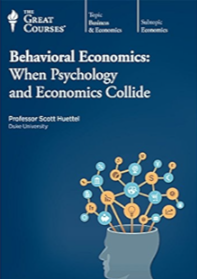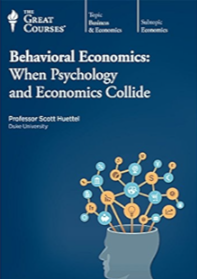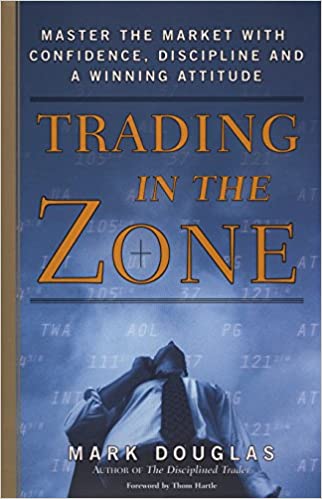Behavioral Economics By Scott Huettel
- Publisher: ECONOMICS
- Availability: In Stock
- SKU: 52076
Rs.0.00
Tags: affordable prices , Altruism , Anchoring , Asset Pricing , Authoritative Recommendations , Behavioral Economics , Behavioral Finance , Behavioral Game Theory , Behavioral Insights , best books , best books online , Best Price , best prices , Best Selling Books , best shop , Bestsellers , Book shopping , bookshop , bookshop Multan , bookshop near me , bookshop online , bookshop online Multan , bookshopPakistan , buy online books , Choice Architecture , Cognitive Biases , Consumer Protection , Convenient Payment Options , Customer Reviews , Decision Making , digital shopping , Discount Offers , Easy Returns , Economic Decision Making , Economic Models , Environmental Conservation , Fast Delivery , Financial Markets , Framing Effects , good books , good booksonline , Health Outcomes , Herd Behavior , Human Behavior , Individual Choices , Internet Shop , Investment , Investor Sentiment , Loss Aversion , Membership Benefits , Mental Accounting , Mobile Compatibility. , New Releases , Nudging , one stop shop , ONLINE BOOKS , Online Books Shop , online books store , Online Bookshop , Online Bookshop Pakistan , online bookstore , online shop , online shopping , Online Shopping Pakistan , OnlineShoppingPakistan , Pakistan Bookshop , PakistanBookshop , PakistanOnlineShopping , Policy Implications , price cut , price-friendly Comprehensive , Prospect Theory , Psychology , Public Policy , Quality Books , Rationality , ReasonablePrice , Reciprocity , reduced price , Reliable Shipping , Responsive Customer Service , Risk Perception , Savings Behavior , Scott Huettel , Search Functionality , secure shopping , Secure Transactions , Shopping , ShopSmartPakistan , Social Preferences , Social Welfare , Social Welfare Programs , Temporal Discounting , Time Preferences , User-Friendly Interface , Virtual Shop , Wide Selection
In "Behavioral Economics When Psychology And Economics Collide" by Scott Huettel, readers delve into the intersection of psychology and economics, exploring how human behavior shapes economic decision-making processes. Huettel illuminates key principles and concepts within behavioral economics, highlighting the intricate interplay between cognitive biases, social influences, and individual preferences that diverge from traditional economic models. Through empirical research and real-world examples, the book elucidates how psychological insights can enhance our understanding of economic phenomena, offering valuable implications for policymakers, businesses, and individuals alike.
Key Points:
1. Cognitive Biases: Cognitive biases, such as loss aversion and framing effects, profoundly influence economic decision-making by skewing perceptions of risk and reward. Understanding these biases is crucial for developing more accurate economic models and predicting behavior.
2. Prospect Theory: Prospect theory challenges the classical economic notion of rational decision-making by proposing that individuals evaluate potential outcomes relative to a reference point, leading to non-linear preferences and risk attitudes.
3. Social Preferences: Humans exhibit complex social preferences, often prioritizing fairness, reciprocity, and altruism in economic exchanges. These preferences can deviate from purely self-interested behavior, impacting market dynamics and resource allocation.
4. Nudging and Choice Architecture: Nudging, a concept popularized by behavioral economists like Richard Thaler, involves designing choice environments to steer individuals towards desired outcomes without restricting their freedom of choice. Effective choice architecture can promote better decision-making and societal welfare.
5. Time Preferences: Temporal discounting reflects individuals' propensity to devalue future rewards in favor of immediate gratification. Understanding time preferences is essential for addressing issues like saving behavior, addiction, and environmental sustainability.
6. Behavioral Game Theory: Behavioral game theory integrates insights from psychology into traditional game theory frameworks, acknowledging the role of bounded rationality and social norms in strategic interactions. This approach provides a more nuanced understanding of human behavior in competitive settings.
7. Mental Accounting: Mental accounting refers to the tendency to categorize and evaluate financial transactions based on subjective criteria, leading to irrational economic decisions. Recognizing these mental accounting biases can inform strategies for promoting savings and investment.
8. Anchoring and Adjustment: Anchoring occurs when individuals rely heavily on initial information (the anchor) to make subsequent judgments or decisions. Awareness of anchoring effects can help mitigate their influence and promote more accurate decision-making.
9. Behavioral Finance: Behavioral finance investigates how psychological factors impact financial markets and asset pricing, challenging the efficient market hypothesis and highlighting the role of investor sentiment, herd behavior, and irrational exuberance.
10. Policy Implications: Insights from behavioral economics have profound implications for public policy, informing interventions aimed at improving health outcomes, consumer protection, environmental conservation, and social welfare programs. By leveraging psychological principles, policymakers can design more effective and ethical policies that align with human behavior.
In "Behavioral Economics When Psychology And Economics Collide," Huettel offers a comprehensive exploration of these key themes, shedding light on the fascinating interplay between human psychology and economic decision-making
════ ⋆★⋆ ════
Writer ✤ Scott Huettel

























